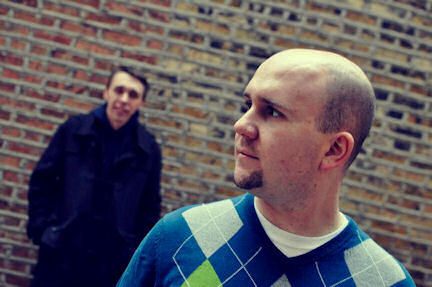Breaking up with the church: A gay Methodist love story
By Nico Lang

Breaking up with the church: A gay Methodist love story
By Nico Lang
In life, they say that it’s our choices that define us and make us who we are. In September, Michael Overman was faced with a big one. As a candidate for ordination in the United Methodist Church, the openly gay Overman would not be permitted to be in a same-sex relationship, despite having been committed to his partner, Frankie, for the past three years. (They met shortly before he entered the ordination process.) Before that time, Overman had been out about his relationship in his church and welcomed with love and open arms. However, to become ordained, Michael Overman would have to go back into the closet—professionally at least.
Overman had known other ministers who had done the same and sacrificed part of themselves for the purpose of sharing God’s love. They had chosen to follow the church’s policy of celibacy. This was not his path.
During an ordination meeting in August, the committee gently informed Overman that—as far as the Methodist church was concerned—he would have to choose between being out about his relationship and his ordination, gaps in his personal and faith life that Overman was determined to bridge.
This year, Overman is working with the Marin Foundation, whose mission is to bring together the LGBT and evangelical communities, and during the ordination meeting, he shared his passion for helping make the church more inclusive. Like the Marin Foundation, Overman believes that “love is an orientation.” In a blog Overman wrote shortly after the hearing, he stated:
“One committee member asked me why I’d felt it important to mention my relationship in my paperwork, especially using such red-flag language as ‘significant other.’…He continued, ‘There are people at the board level who will rip you apart if there’s even a hint of you being, well, you know.’ Another person asked why I, with my passion for inclusion and with my knowledge and awareness of the state of our denomination not being inclusive, would stay here. Why not go elsewhere?…The committee certified me, and I felt no joy. It had been made clear what I would have to do and how I would have to portray myself in order to receive clerical credentials in the UMC.”
As an atheist and someone outside of the Methodist fold, I asked Michael Overman the same question his committee did: “Why would you submit your candidacy to a church that views your relationship as ‘immoral?’ What did you expect to happen?”
In response, Overman stated that when he came to the Methodist church, all he wanted was somewhere to belong. He had been working in a job he hated, and after six long years without a core faith community, Overman felt no purpose in his life. The church gave him a reason to be—but even moreso, a reason to hope.
The 2012 General Conference last May showed promise of a change in the denomination’s stance on homosexuality, and like many LGBT Methodists and their straight allies, Overman hoped that the stance on homosexual relationships would move from “incompatible” to “agree to disagree.” Two such proposals, which would have taken a small but crucial step forward, were both “soundly defeated.”
Change did not come. And it wasn’t coming for Michael Overman.
In October, Michael Overman withdrew from the UMC ordination process and left Holy Covenant United Methodist Church, the place he had called home for the past three years. Having written publicly about his decision to leave, several in the church expressed concern than Overman’s “openness and honesty might impact the ways in which local district committees engaged with and treated queer candidates.” However, Overman said that most the feedback about his decision to leave was positive, and his congregation sent him off just as they had accepted him: with love and compassion. Overman knew this was the right thing to do—to bow out before he “lost himself.”
According to Overman, the process of ordination helped him “discover one of the most vital parts of both [his] call to ministry and understanding of the Christian faith: authenticity.” The only way to be real and honest in his mission was to seek it elsewhere.
Instead of making a difference within the Methodist church—as Overman once strived to do—he now hopes to make a difference outside of it by “naming injustice.” In October, Overman spoke to the Chicago Tribune about his struggle for inclusion and the church’s embrace of the other. Since leaving the Methodist church, Overman has been sharing his story not just with the media but with other people of faith as a way of continuing to ask questions of organized religion and move the conversation forward.
During our interview, Overman stressed the necessity of religion to act as a force for good in the world—stating that, at its best, religion can show LGBT folks that “we’re not simply just creations gone wrong. We’re whole people of worth and value.”
According to Overman, queer people of faith have a part in that—which starts by speaking truth to power. Affecting change starts with being ourselves.
Nico Lang blogs about LGBTQ life in Chicago for WBEZ.org. Follow Nico on Twitter @Nico_Lang or on Facebook.
